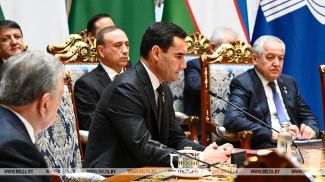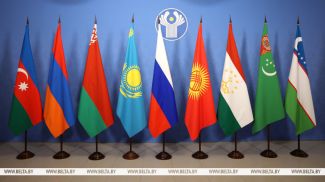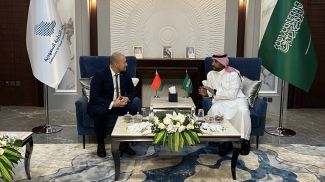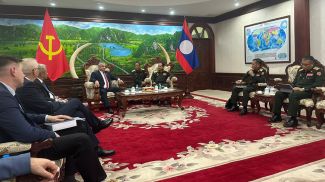MINSK, 12 December (BelTA) – CEI Alternate Secretary General Margot Klestil-Loffler expects Belarus to continue working hard as part of the Central European Initiative. Margot Klestil-Loffler made the relevant statement after the meeting of the CEI heads of government in Minsk on 12 December, BelTA has learned.
Margot Klestil-Loffler said: “I would like to thank Prime Minister of Belarus Andrei Kobyakov and Minister of Foreign Affairs Vladimir Makei for Belarus' successful presidency in the CEI in 2017 and for the large-scale events that have been implemented. I hope we can look forward to many other new initiatives in the future.”
Margot Klestil-Loffler described the 12 December meeting of the heads of government of the CEI countries as an important milestone for Belarus. “But I would like to remind you that in June Belarusian Minister of Foreign Affairs Vladimir Makei invited his colleagues to visit Minsk and the foreign ministers were received by Belarus President Alexander Lukashenko. It is a testimony to the importance Belarus attaches to cooperation with the Central European Initiative,” she stressed.
The main theme of the CEI meeting in Minsk on 12 December was the increasing role of CEI countries in promoting compatibility and complementarity between different integration processes in Greater Europe, including by pooling efforts to counteract new threats to stability in the region and by stepping up pragmatic economic cooperation between different integration formats.
In the course of its CEI presidency Belarus arranged a number of events, including a meeting of CEI ministers of foreign affairs, a ministerial conference on science and technology, a CEI Parliamentary Assembly session, a ministerial conference on mutual ties and compatibility in the CEI region in correlation with the new Silk Road, meetings of the national coordinators committee and the working group on the CEI management.
The Central European Initiative was founded in 1989 to promote the development of sustainable ties between countries in Central, Western and Eastern Europe in politics, economy and culture, and also to prevent the emergence of new dividing lines in Europe. Today this regional association includes 18 countries: Austria, Albania, Belarus, Bulgaria, Bosnia and Herzegovina, Hungary, Italy, Macedonia, Moldova, Poland, Romania, Serbia, Slovakia, Slovenia, Ukraine, Croatia, Montenegro, and Czechia. Belarus joined the CEI in June 1996.













